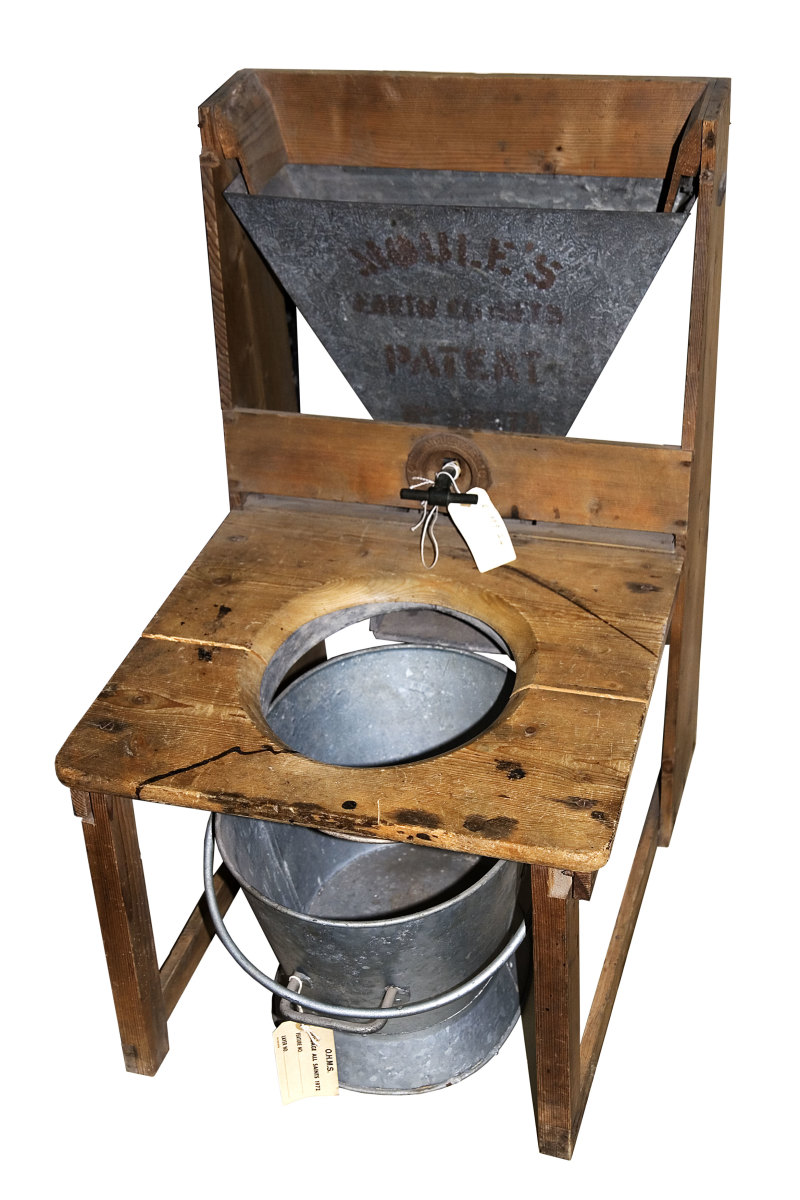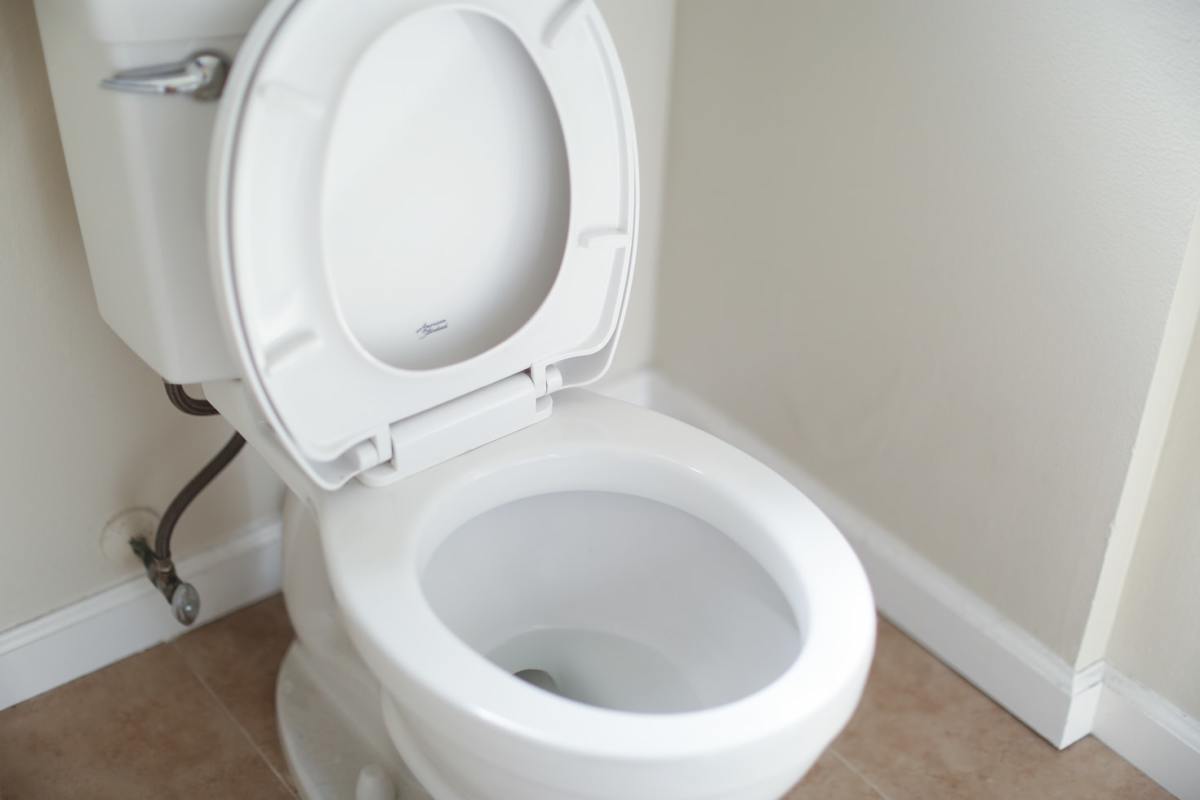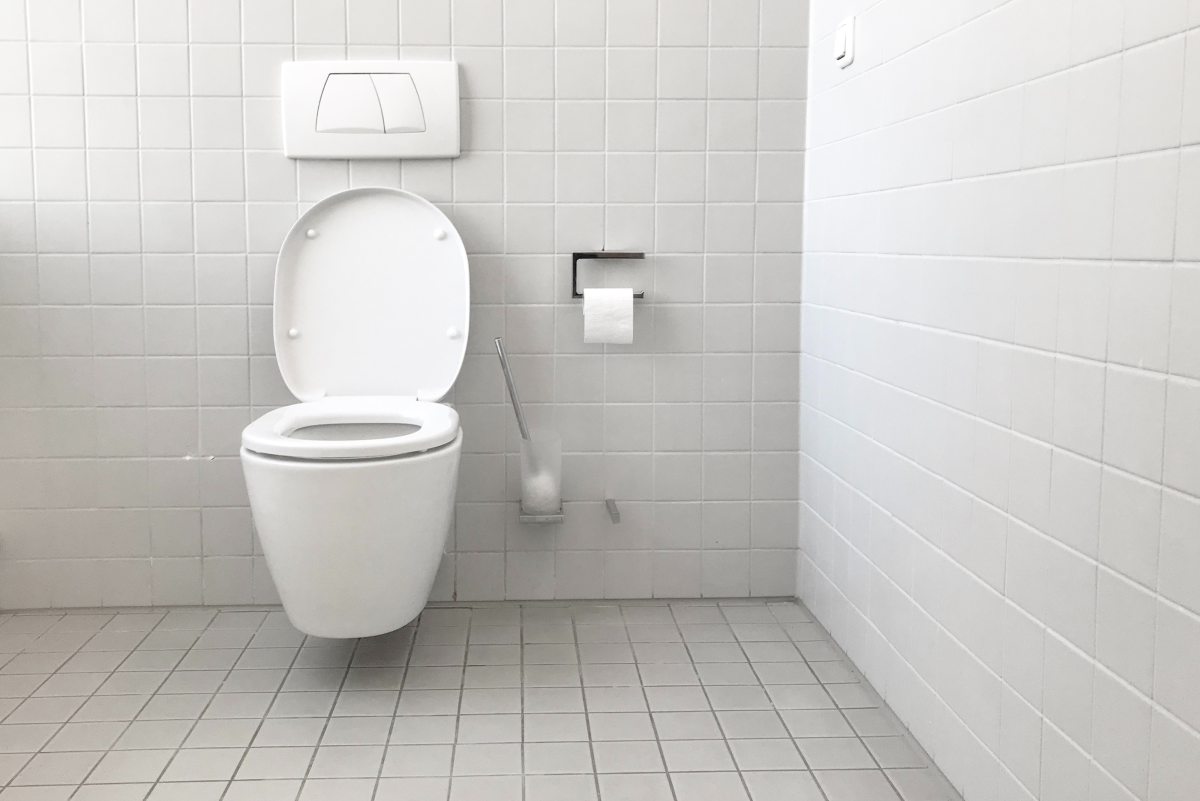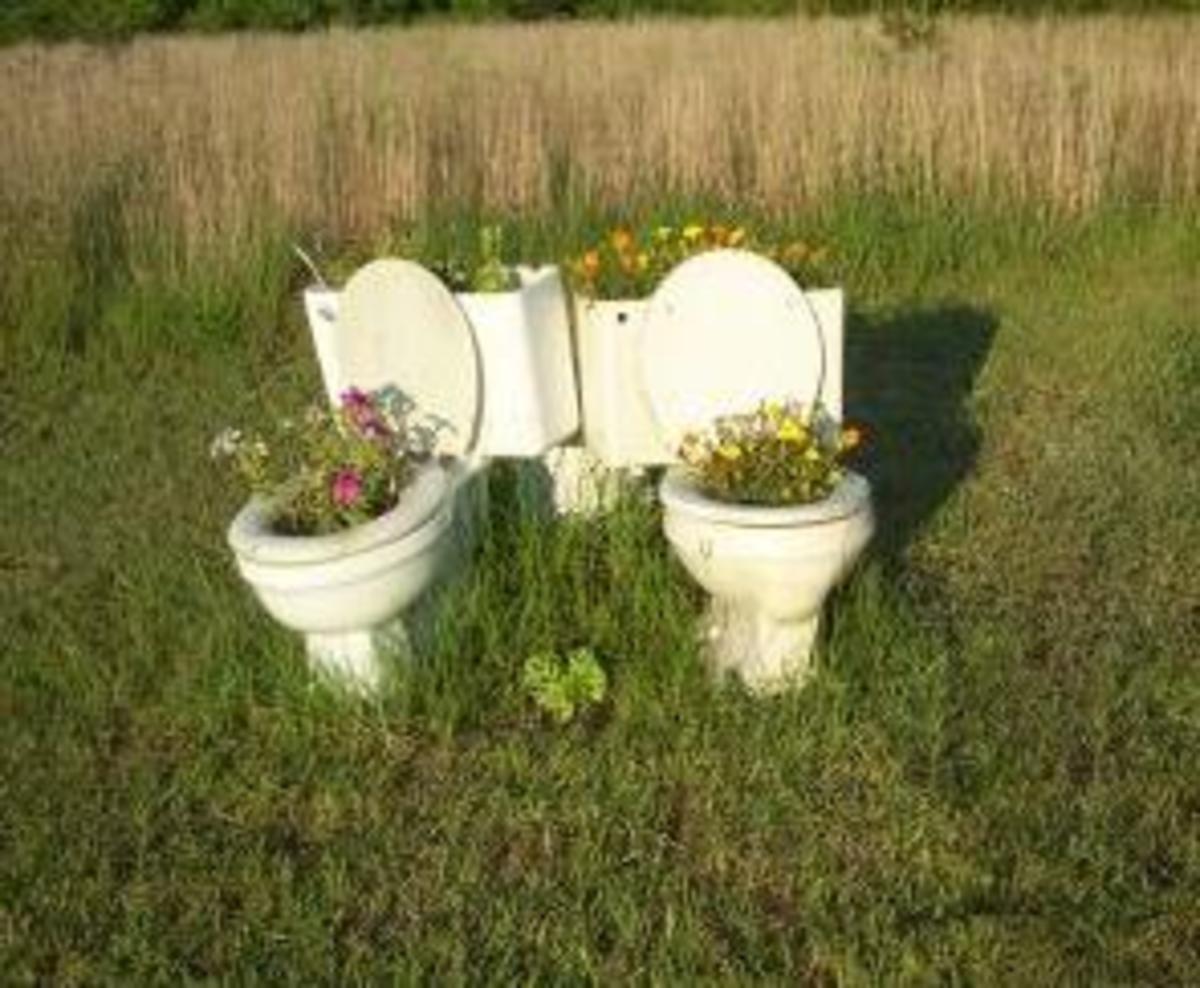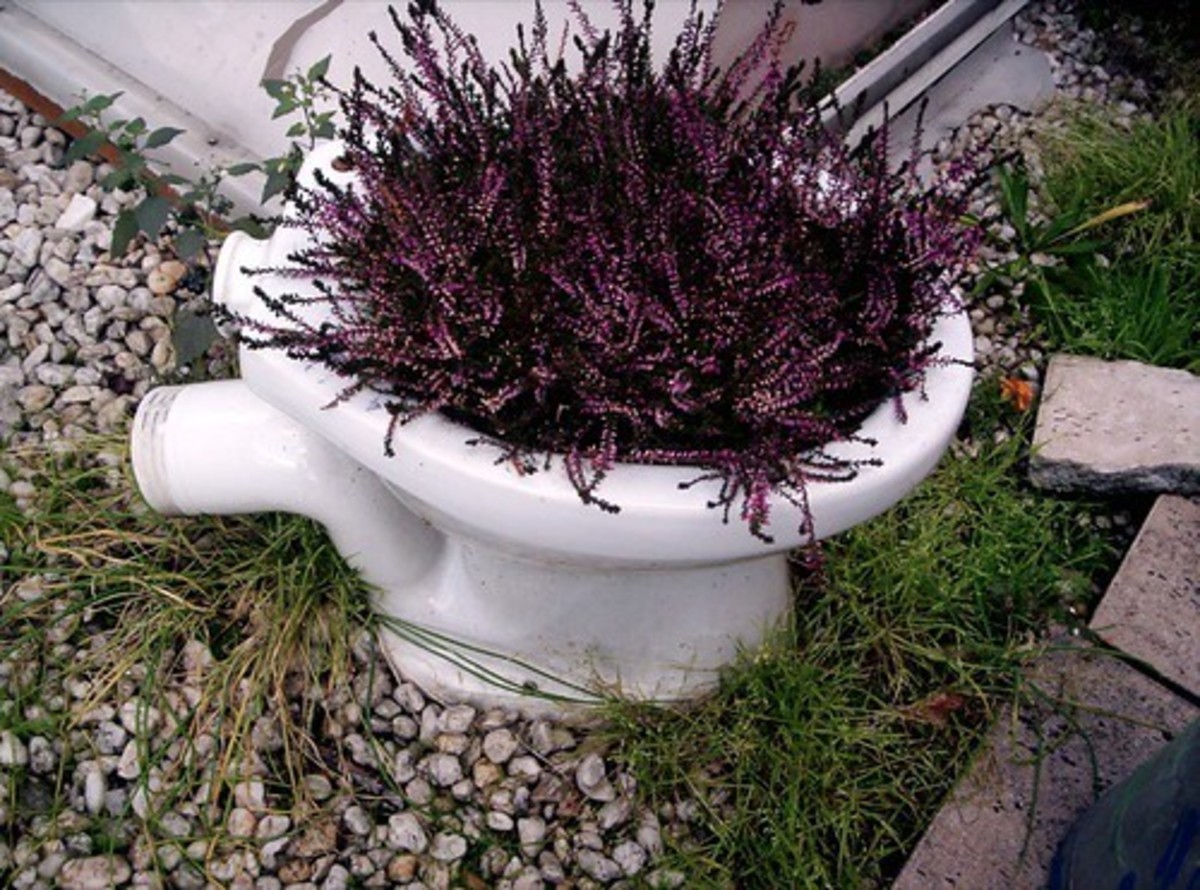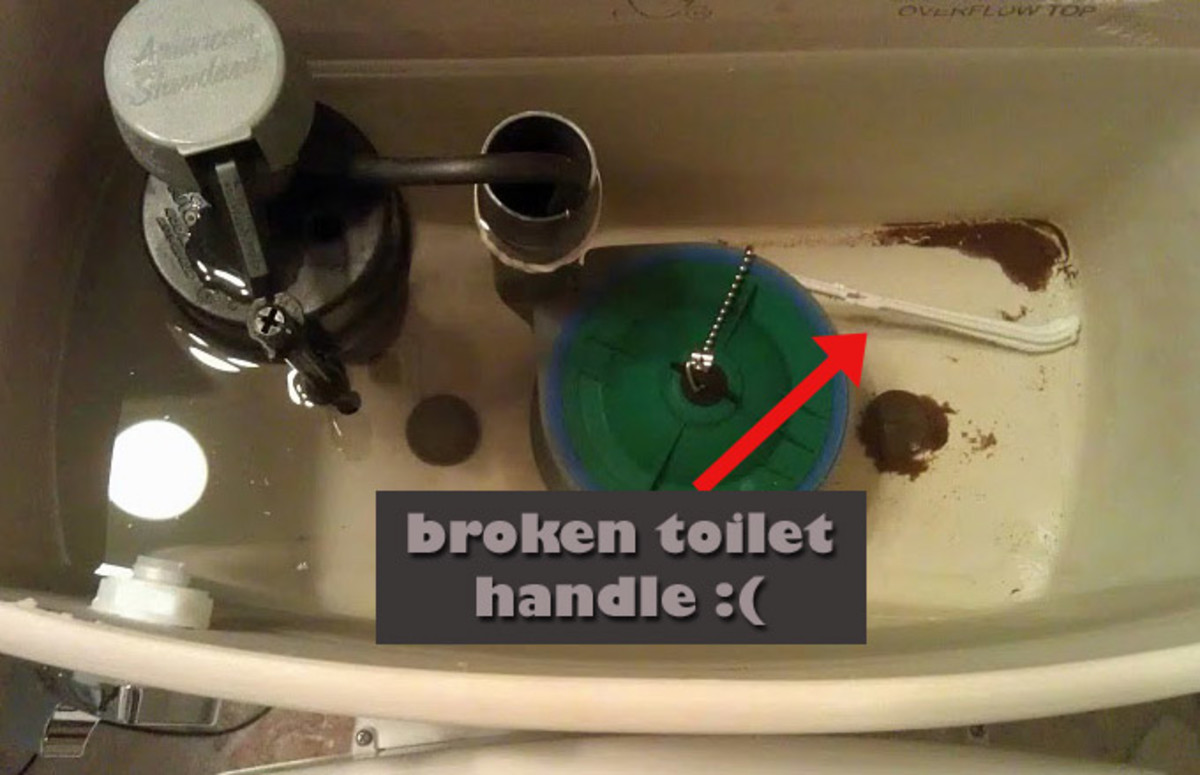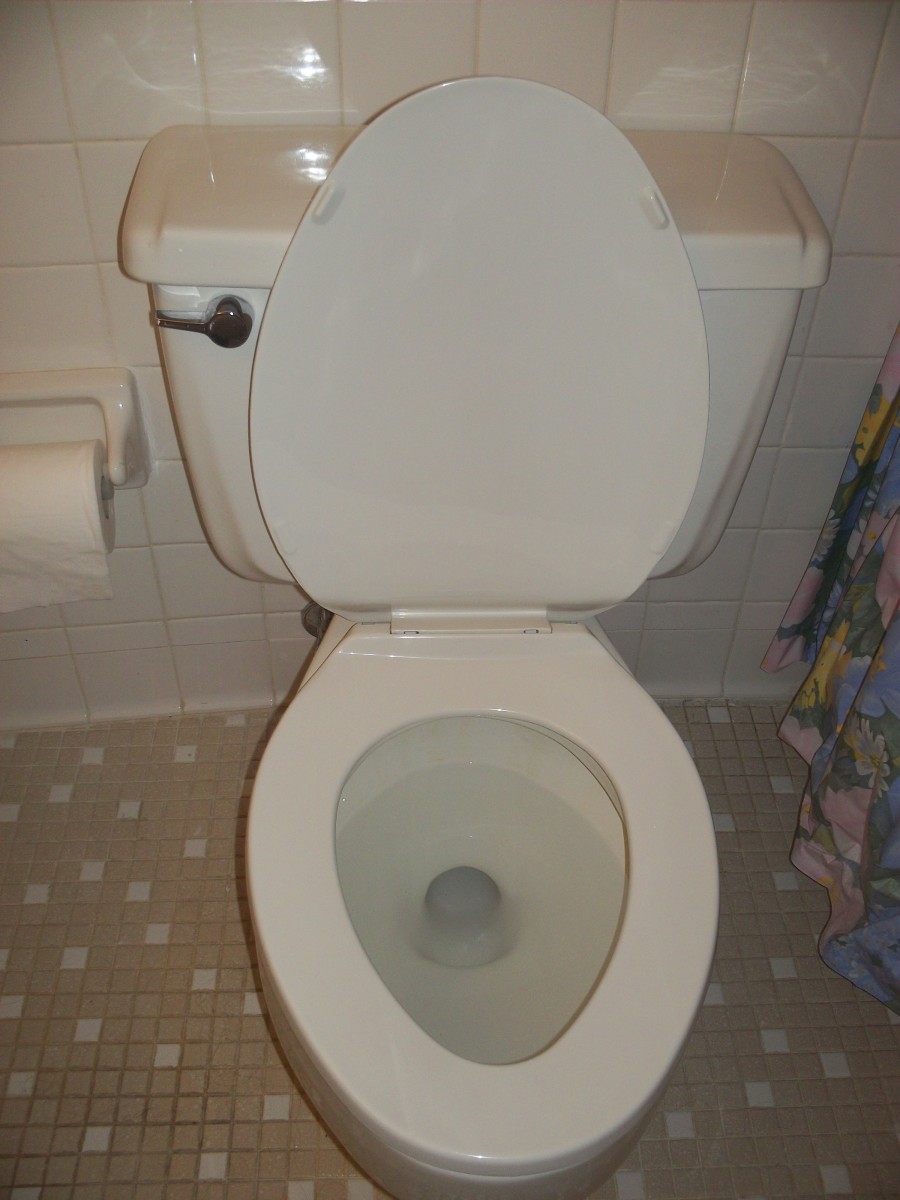Phantom Flushing Toilets and Other Water Wasters
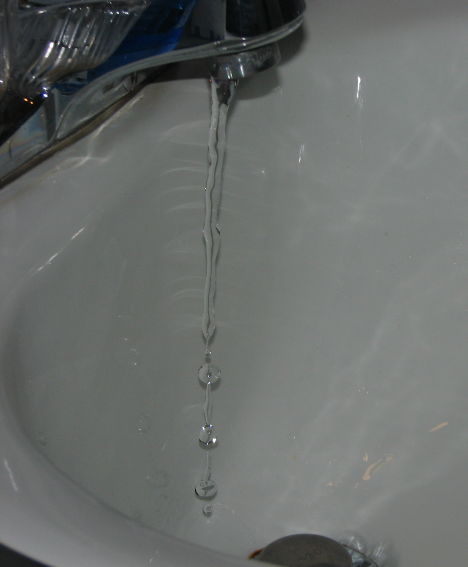
Phantom Flushing
One night when I was drifting off to sleep, I heard the toilet flush. I was alone in the house, and it was unnerving to hear the toilet flush. I went to the bathroom to check on what was happening. Sometimes the chain would get caught under the flapper. I thought maybe that had happened. The chain was where it was supposed to be. I couldn't figure out what had made the toilet flush, so I went back to bed feeling a little uneasy. The toilet flushed itself a couple more times, but I didn't know what to do about it.
Looking online I found information that the flapper might not be sealing well, so I purchased a new flapper. It was fairly easy to replace the flapper. The phantom flushing stopped.
A leaky flapper in a toilet or the chain catching under the flapper can waste a lot of water. Many people don't realize just how much water can be wasted. If you don't have a water conserving toilet you are using about 3.5 gallons of water with each flush. A phantom flushing toilet will use that much water every time it flushes itself.
I work for the water company in our town. Often people who have high water usage blame our meters for their high usage. Usually if the meter stops working right it will slow down and will register less water usage than has actually occurred. One of the first things we ask is do you have a leaky toilet. Older people sometimes won't hear a toilet running. Sometimes a toilet in a second bathroom that isn't used much is where the leak is at. If you have high water usage your toilet should be one of the first things you check.
A leaky faucet can also use a large amount of water. According to the USGS site 60 drips per minute from a faucet wastes 5 gallons of water a day. If you have a stream of water you can really go through the water fast. Fixing a leaking faucet when you first see it is leaking is a great way to save money.
Leaking pipes can go through a lot of water too. Listen to hear running water sounds in your walls when no water is being used in your home. If you hear running water and you know no water is being used, it is time to check for leaks. Pipes may be leaking under your home. Pipes can also spring a leak underground on their way to your home. Checking for wet spots is a good idea. Your utility company can probably check your meter or tell you how to check your meter to see if it is clocking. If the meter is clocking and you have all the water turned off, you will know you have a leak. Underground leaks unfortunately don't always show on the surface. Sometimes they can be going down into the ground. If your meter is clocking, you will probably want to hire a plumber right away to find the leak and save yourself a lot of money.
One more thing we tell people to check is their sprinkler system. Sometimes a power bump from a lightening storm can affect the timer on their sprinklers. They may have the water turning on more frequently or staying on for longer periods of time.

